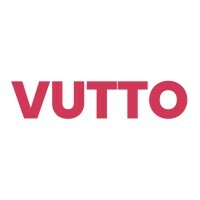Eternal’s Strategic Shift: Liquidating Zomato Netherlands
In a significant move, Eternal, the parent company of Zomato, has initiated the liquidation of its Dutch subsidiary, Zomato Netherlands B.V. This decision marks Eternal’s first major corporate action since rebranding from Zomato Ltd. to Eternal Ltd. earlier this year. The move is expected to be completed within a year and is part of a broader strategy to streamline operations and focus on core markets.
The Focus on Core Markets
Zomato, once a global player with operations in over 20 countries, has been gradually retreating from international markets. This shift began with the closure of subsidiaries in the United States, Singapore, and several European nations. The decision to liquidate Zomato Netherlands B.V., which had no active business and a net worth of approximately Rs 32 lakh, is a continuation of this strategy.
CEO Deepinder Goyal has emphasized that the overseas expansion "didn’t play out as expected," prompting the company to concentrate on its primary market in India. The Dutch entity’s closure is not expected to impact revenue, as it was not a material subsidiary and reported no turnover in fiscal 2024.
The Rebranding to Eternal
In February 2025, Zomato Limited announced its rebranding to Eternal Limited, following board approval. The Zomato app retains its branding, but the corporate entity and stock ticker have transitioned to Eternal. This rebranding reflects a strategic pivot as the company refocuses its efforts on strengthening its domestic market presence.
Lessons from the Past
The decision to liquidate Zomato Netherlands B.V. is not an isolated incident. It follows similar actions in Slovakia, Vietnam, and Poland. This pattern highlights a critical lesson for startups: the importance of aligning expansion strategies with core competencies and market realities.
Zomato’s experience underscores the challenges of global expansion, particularly in the competitive food delivery sector. Companies must carefully evaluate market conditions and operational capabilities before venturing into new territories.
Industry Insights
Zomato’s retreat from international markets is not unique. Many startups face similar challenges when expanding globally. For instance, Uber’s decision to exit certain markets, such as China and Southeast Asia, was driven by intense competition and regulatory hurdles. These examples illustrate the importance of strategic focus and adaptability in the fast-paced startup ecosystem.
The Path Forward for Eternal
As Eternal navigates this transition, the focus remains on strengthening its position in India. The company is likely to invest in technology and infrastructure to enhance its service offerings and customer experience. This strategic shift aligns with broader industry trends, where companies are leveraging technology to drive efficiency and innovation.
The liquidation of Zomato Netherlands B.V. is a step towards a more streamlined and focused business model. By concentrating on its core market, Eternal aims to build a sustainable and profitable future.
A Thought-Provoking Question
As you reflect on Eternal’s strategic decisions, consider this: How can startups effectively balance the allure of global expansion with the need to maintain operational focus and sustainability? This question is crucial for any company seeking to navigate the complexities of the modern business landscape.
In conclusion, Eternal’s decision to liquidate its Dutch subsidiary is a strategic move aimed at refocusing its efforts on the Indian market. This decision, part of a broader trend of retrenchment from international markets, highlights the challenges and opportunities that startups face in the global arena. By learning from past experiences and focusing on core competencies, Eternal is positioning itself for long-term success in the ever-evolving food delivery industry.


















